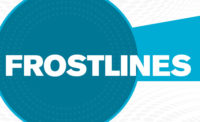ACHR NEWS Editorial Staff
WALLER, Texas — As government, manufacturers, and contractors address the environmental impact of HFCs, there’s another issue, often lurking unnoticed, potentially raising both electric bills and greenhouse gas emissions: slow refrigerant leaks that may occurr in HVAC units.
Often ignored until they become expensive problems, non-catastrophic refrigerant leaks add up over a system’s lifetime. Slow leaks can diminish system performance, increasing homeowner costs to achieve satisfactory indoor comfort. Plus, refrigerant leaks from an R-410A system have a high GWP, according to the Environmental Protection Agency (EPA).
Daikin Comfort Technologies North America Inc. aims to help mitigate those leaks by launching Charge Integrity, a new feature designed for its cloud-based services that alerts HVAC contractors if refrigerant charge levels drop below optimal thresholds.
“Loss of refrigerant into the atmosphere from HVAC systems impacts performance, efficiency and operational cost, while contributing to greenhouse gas emissions,” said Jim Cahill, IoT solutions business leader for Daikin, in a press release. “Traditionally, these loss-of-charge events often go unidentified until a homeowner complains about ineffective cooling or spiking electric bills.”
By identifying slow refrigerant leaks, Charge Integrity enables Daikin Comfort Pro contractors to address these issues before they become severe. The feature, part of Daikin One cloud services, uses smart sensing to identify a non-catastrophic loss of refrigerant charge on many Daikin systems connected to the Daikin cloud, said Cahill.
Daikin Comfort Pros will now receive alerts, via email and/or push notification, if the refrigerant level in select Daikin unitary inverter systems connected to Daikin One cloud services drops below the Charge Integrity alerting threshold. Alerts also provide possible causes, along with corrective actions contractors can take.
“The American Innovation and Manufacturing (AIM) Act calls on manufacturers to reduce the environmental impact of HFCs,” said Lee Smith, vice president of strategic marketing and environmental technology solutions for Daikin. “We are leveraging Daikin One cloud services to help contractors address what is an under-the-radar but solvable issue.”
Daikin Charge Integrity is the latest example of the brand’s resolve to pioneer sustainability initiatives by rethinking heating and cooling systems and service, resulting in solutions such as Daikin ATMOSPHERA, the first low-GWP single-zone ductless system in North America that uses R-32 refrigerant, and Daikin FIT, a solution that enables a traditional ducted system to pair with a compact, high-efficiency, side-discharge inverter heat pump and connected to the Daikin One ecosystem, the company said.







